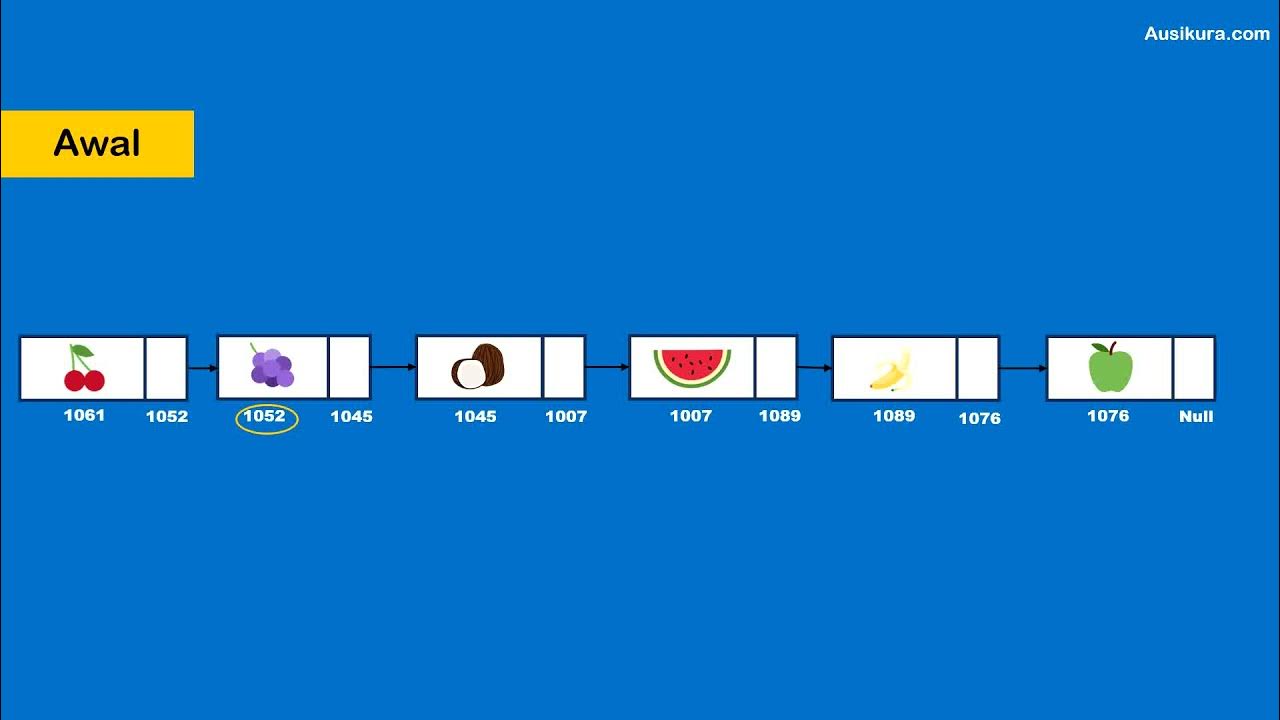What is an array in programming and what is it for
Summary
TLDRThe video explains the concept of arrays in programming, highlighting their purpose in grouping similar types of data—like integers or strings—into a single structure for efficient management. It covers key features such as zero-based indexing, the limitation to a single data type, and the memory efficiency that allows for faster access. Practical applications include managing collections of data, such as song lists from databases, to enhance user interaction in applications. The video also offers tips for interviews, emphasizing the importance of understanding arrays' structure and functionality.
Takeaways
- 😀 An array is a data structure that groups similar types of data together, such as numbers or strings.
- 😀 Arrays help avoid having multiple individual variables, making data management simpler.
- 😀 Zero-based indexing means that the first element of an array is accessed with the index 0.
- 😀 Most programming languages use contiguous memory storage for arrays, which allows for fast access to elements.
- 😀 Arrays can typically hold only one type of data throughout their structure, such as only integers or only floats.
- 😀 Common use cases for arrays include fetching data from databases and displaying lists, like songs in a music app.
- 😀 Arrays maintain an ordered structure, meaning elements retain their insertion order.
- 😀 Understanding that variables are memory addresses can enhance your grasp of how arrays function.
- 😀 In interviews, mentioning the memory storage aspect of arrays can demonstrate a deeper understanding of the concept.
- 😀 For beginner programmers, having a clear learning path or guide is essential for navigating the programming landscape.
Q & A
What is an array?
-An array is a data structure that groups together multiple variables of the same type, allowing for efficient organization and access to similar data.
Why are arrays important in programming?
-Arrays help manage large sets of similar data efficiently, preventing the need to create numerous individual variables. They facilitate easier data manipulation and retrieval.
What is zero-based indexing?
-Zero-based indexing means that the first element of an array is accessed using the index 0, followed by 1 for the second element, 2 for the third, and so on.
Can an array hold different data types?
-Typically, arrays are homogeneous, meaning they hold elements of the same data type. However, some programming languages allow mixed types within an array.
How are elements stored in an array?
-Elements in an array are stored in contiguous memory locations, which can improve access speed compared to non-contiguous variable storage.
What is a common use case for arrays?
-A common use case for arrays is when fetching data from a database, such as a list of songs. Sending data as an array is more efficient than sending each item individually.
What distinguishes ordered arrays from unordered arrays?
-Ordered arrays maintain the sequence of elements as they were added, allowing predictable access patterns, while unordered arrays may not maintain such a sequence.
Why is understanding arrays beneficial for beginners?
-Understanding arrays is crucial for beginners as they are a fundamental data structure that lays the groundwork for more advanced programming concepts and data manipulation techniques.
What should you highlight in an interview when discussing arrays?
-In an interview, you should highlight that variables are memory addresses and that arrays store elements together in memory, which enhances data access speed.
What resource is suggested for those looking to understand their programming learning journey?
-The transcript mentions a free guide available at imdev.net, which outlines the essential skills needed for becoming an employee, freelancer, or entrepreneur in the tech field.
Outlines

This section is available to paid users only. Please upgrade to access this part.
Upgrade NowMindmap

This section is available to paid users only. Please upgrade to access this part.
Upgrade NowKeywords

This section is available to paid users only. Please upgrade to access this part.
Upgrade NowHighlights

This section is available to paid users only. Please upgrade to access this part.
Upgrade NowTranscripts

This section is available to paid users only. Please upgrade to access this part.
Upgrade NowBrowse More Related Video

66. OCR GCSE (J277) 2.2 Data types and casting

VARIABEL dan TIPE DATA dalam pemrograman yang penting untuk diketahui

Pengenalan Linked List - struktur Data (Animasi)

72. OCR A Level (H046-H446) SLR13 - 1.4 Primitive data types

Variables and Data Types | Python Tutorial - Day #6

arrays in c, one dimensional array, two dimensional array |accessing and manipulating array elements
5.0 / 5 (0 votes)